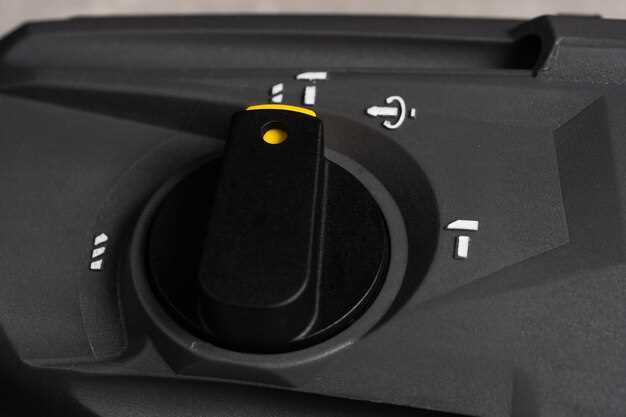
When it comes to maintaining a BMW, one of the common issues that owners face is battery drain. Understanding the factors that contribute to this problem is essential for any BMW enthusiast. A well-functioning battery is crucial for the overall performance and reliability of your vehicle.
Several causes can lead to battery drain in BMW models. From electrical systems that may not shut off correctly to the use of aftermarket accessories, each factor can have a significant impact on your battery’s lifespan. It is essential to identify and address these issues to avoid inconvenient breakdowns and ensure your vehicle operates smoothly.
In this article, we will delve into the top causes of battery drain in BMWs, providing insights and tips on how to prevent these issues. By staying informed, you can protect your investment and enjoy the driving experience that BMW is known for.
Understanding Parasitic Drain in BMW Electrical Systems

Parasitic drain refers to the continuous consumption of electrical power from the battery when the vehicle is turned off. In BMW vehicles, several electrical components can contribute to this phenomenon, leading to unexpected battery depletion.
One common source of parasitic drain in BMW systems includes electrical accessories such as infotainment systems, alarm systems, and navigation units. These components may remain active even when the car is not in use, slowly draining the battery over time.
Another contributor is the module wake-up feature, where various electronic control units (ECUs) remain active or enter a state of standby. While this feature allows for quick access to the vehicle’s functions, it can unintentionally consume power, resulting in a discharged battery.
In some cases, malfunctioning electrical systems or faulty sensors can exacerbate parasitic drain. If a component fails to enter sleep mode or exhibits excessive power draw, it may lead to persistent battery issues, requiring investigation and potential repair.
To mitigate parasitic drain, BMW owners should regularly monitor their battery health and electrical systems. Conducting periodic checks can help identify any components that may be draining the battery abnormally. If severe parasitic draw is suspected, engaging a professional technician with experience in BMW electrical systems is highly recommended for accurate diagnostics and resolutions.
Common Electrical Components That Contribute to Battery Issues

Several electrical components in BMW vehicles can contribute to battery drain, often leading to premature battery failure and unexpected issues. It’s essential to understand how these components function and their potential impact on battery performance.
One primary suspect is the vehicle’s lighting system. Headlights, interior lights, and fog lights can draw significant power when left on inadvertently, causing the battery to deplete more quickly than usual. It’s vital to ensure that all lights are turned off when the vehicle is not in use.
The alternator is another crucial electrical component. While its primary role is to charge the battery while the engine is running, a failing alternator can lead to inadequate charging. If the alternator is not functioning correctly, the battery may not receive sufficient power, resulting in drain, especially during short trips where the battery has little time to recharge.
Moreover, electronic modules such as the infotainment system, navigation unit, and climate controls can also impact battery health. These components may continue to draw power even when the vehicle is off, leading to an excessive drain over time. It’s important for users to ensure that any settings that keep these systems active while the car is parked are properly adjusted.
Keyless entry systems are yet another electrical component that can influence battery life. If the key fob is left in proximity to the car or if the system is malfunctioning, it can keep the vehicle’s electrical systems awake, causing a slow but steady battery drain.
Lastly, aftermarket accessories installed in the vehicle, such as alarms, stereos, and other electronic devices, can also contribute to battery drain. Poorly installed components may create electrical issues or draw power even when not needed. Regular checks and proper installation of any additional devices are advisable to mitigate this risk.
In conclusion, being aware of these common electrical components and their potential for causing battery issues can help BMW owners take proactive steps to preserve battery life and ensure reliable vehicle performance.
Practical Tips for Preventing BMW Battery Drain
To avoid battery drain in your BMW, it’s essential to stay vigilant about the electrical systems within your vehicle. Regularly check for any lights or devices left on after exiting the car, as they can quickly exhaust the battery. Ensure that all doors and the trunk are securely closed, as open entries can lead to interior lights remaining active.
Another key step is to monitor the health of your battery. A weak or aging battery is more susceptible to drain. Schedule routine battery checks, especially before extreme weather seasons, as both cold and hot temperatures can significantly affect battery performance.
Utilizing a battery maintainer or trickle charger is advisable if you store your BMW for an extended period. This device helps maintain optimal battery charge levels without the risk of overcharging. Additionally, disconnecting the battery during long-term storage can prevent unnecessary drain from parasitic loads.
Be mindful of your vehicle’s electrical accessories. Aftermarket additions such as audio systems or lighting can pull power even when the engine is off. Ensure these components are installed correctly and have low current draw when inactive.
Lastly, stay informed about any software updates from BMW that could optimize your vehicle’s electrical systems. Up-to-date software can enhance efficiency and reduce the risk of battery drain caused by background processes that continue to run unnecessarily.



